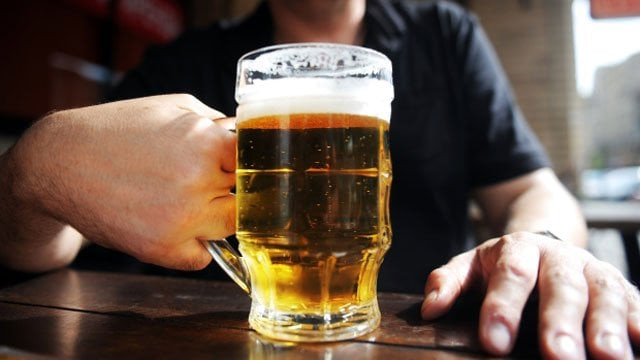Punjab Food Authority sizes up safety role in liquor industry
Proposed draft legislation includes detailed section on alcoholic beverages

Proposed draft legislation includes detailed section on alcoholic beverages.
PHOTO: AFP
The authority has included alcoholic beverages in a draft legislation which, according to the PFA director general, is likely to be presented in a board of directors’ meeting scheduled for February 13.
A senior PFA official said that the idea of including alcoholic beverages under the regulation was not to promote them in any way but to monitor their manufacturing.
If approved, the legislation will allow PFA to check whether alcoholic beverages produced in the province are safe for consumption.
The Excise and Taxation Department, however, will continue to regulate alcohol production.
Liquor licences: ‘Stop issuing permits in the name of Christians’
The proposed legislation is an amalgamation of three different food safety regimes being observed around the world, members of the PFA scientific panel said. Marathon meetings were held in Lahore and Faisalabad over the past several weeks to prepare the draft, they said.
The scientific panel also consulted several stakeholders while preparing the draft, they said. On Monday, the proposed legislation was shared with a representative from Murree Brewery, the panel members added.
The proposed legislation – a copy of which is available with The Express Tribune – divides alcoholic beverages into three categories: distilled, undistilled and fermented. Distilled beverages are further divided into brandy, gin, rum, vodka and whiskey. Undistilled drinks have been broken down into wine, fortified wine and beer, while fermented beverages have been subdivided into mead, palm wine, ulanzi, cider, hard cider, boukha, perry and botrytised wine. All these drinks have been extensively defined according to their characteristic colour, taste and bouquet. The legislation also specifies which of these beverages can either be bottled, canned or kegged.
In addition to general labelling regulations, every package containing alcoholic beverage will also declare alcohol content. A beverage containing more than 8% alcohol shall not be represented as a low alcohol beverage. Any beverage containing more than 0.5% alcohol cannot be described as non-intoxicating on its packaging. A statutory warning which states that the “consumption of alcohol is injurious to health” will be printed in English and Urdu by the manufacturer.
Toxic liquor kills varsity student
Speaking on the condition of anonymity, a Murree Brewery official said his company has sent its suggestions to the PFA scientific panel. According to PFA, while some changes have been made to the initial draft, the basic outline of the alcohol section remains the same.
The Murree Brewery official said the company’s products were already being regulated by excise authorities, which monitored the contents of beverages as well. He also pointed out that none of Pakistan’s three functioning breweries were producing wine. “Murree only produces 30 types of liquor and six types of beer,” he said, adding that certain liquor types were produced on order only. The official said Murree intends to produce wine in future and was seeking the government’s permission to do so.
PFA director general Noorul Amin Mengal said that safety and standards of any beverage was his authority’s subject. He said that the idea of including alcoholic beverages under the regulation was not to promote them in any way but to monitor its manufacturing.
Published in The Express Tribune, February 3rd, 2017.



















COMMENTS
Comments are moderated and generally will be posted if they are on-topic and not abusive.
For more information, please see our Comments FAQ